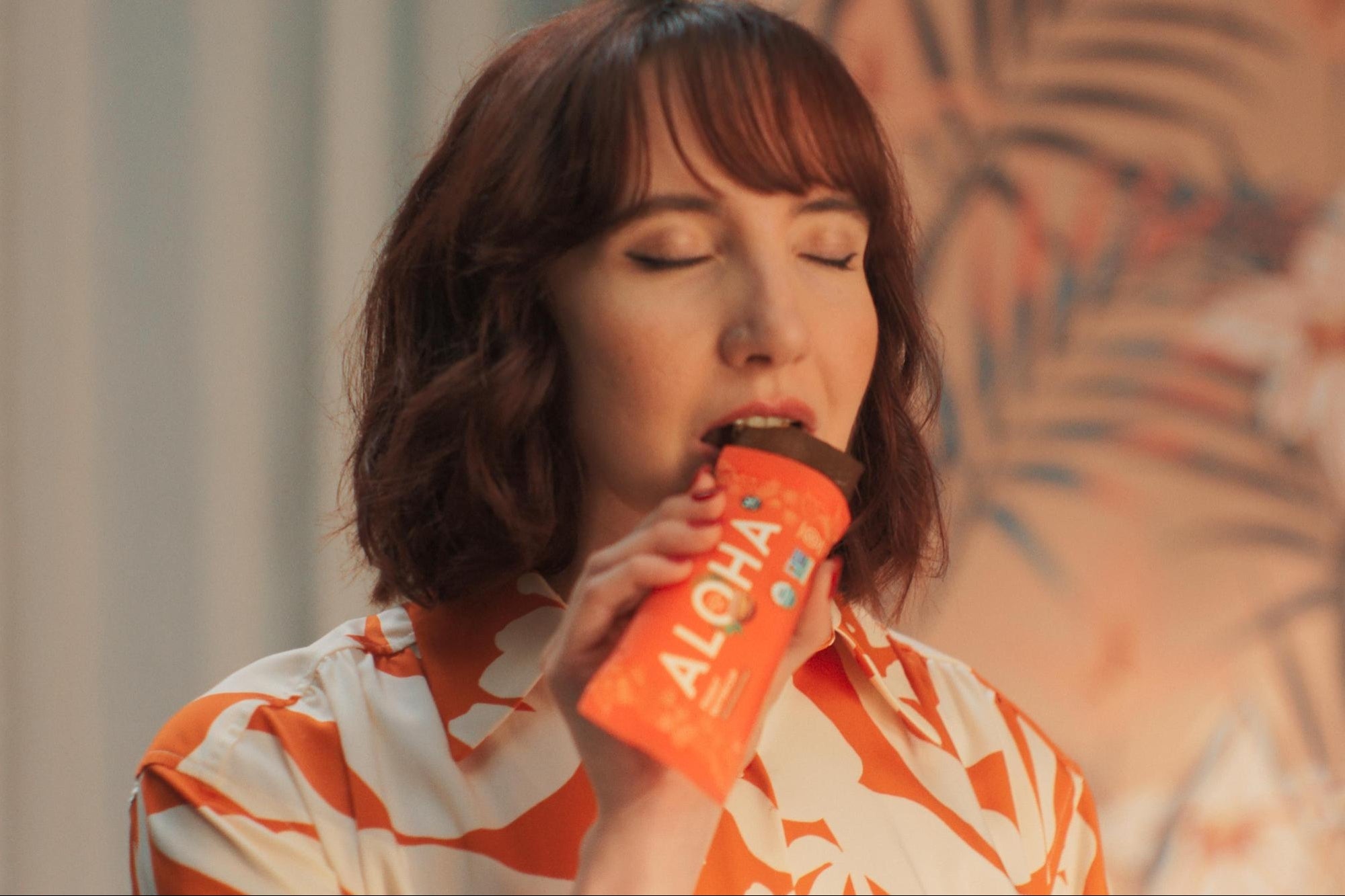In this ongoing series, we are sharing advice, tips and insights from real entrepreneurs who are out there doing business battle on a daily basis. (Answers have been edited and condensed for clarity.)
Give us the elevator pitch for ALOHA.
ALOHA is an independent, employee-owned company that’s all about creating delicious, nutritious, plant-based food that makes people feel good. Our award-winning bars, powders, and drinks are high in protein, low in sugar, and made with sustainably sourced, USDA Organic, Non-GMO Project Verified, and Certified Vegan ingredients. We’re also proud to be climate-neutral and B Corp Certified, which means we use our business as a force for good. We are consistently the fastest-growing food company in our category across all channels, online and offline. With this growth, we knew it was finally the right time to launch our new “Deliciously Satisfying” campaign. Our goal now is to make ALOHA a household name.
Related: When Daymond John Banged on His Door, This Entrepreneur Knew He Was Onto Something
Can you talk about the struggles you faced when you took over ALOHA?
My passion is building and scaling “Better For You” brands, namely in fashion and food. I’ve had key leadership roles at brands like Under Armour, KIND Snacks, Nature’s Bounty, and Chobani; all brands that challenged the status quo and asked, “Can we do better?”
When I took over ALOHA in late 2017, the company was in a tough spot. After raising and losing over $65 million in just four years, it was on the brink of collapse—financially defunct, with no product-market fit and low morale. I knew a rebuild was the only option. Over 18 months, we reformulated the entire product line, revamped the brand to stand out in a crowded market, and built a team of employee-owners who shared my “vision for excellence.” We applied lessons I’d learned at Chobani and Under Armour to build a healthier, more sustainable business. Today, ALOHA is a $100-million-plus brand and the fastest-growing in its category.
Credit: Aloha
For startup entrepreneurs in CPG, what is the most important thing they should be focused on?
A great product is your number one priority. If you are a food company, that means flavor and taste. No matter how “novel” your ingredients are, or what diet trend you’re riding, if your product doesn’t win over your consumer on the first taste you’re a one-hit wonder. A company can have great marketing or a charismatic founder or a key influencer hawking its products, but if a consumer only buys once, it’s over. Your product is your lifeline, so invest in making it the best. Don’t skimp or cut corners. Once you lose trust, it’s twice as hard to regain it. In competitive categories, a “good” product isn’t enough — it has to be amazing. If it’s not a showstopper, go back to the drawing board.
Can you give advice for getting onto store shelves?
Understand what “winning” means to your key constituents. For retail partners, focus on what matters to them, namely incrementality and productivity essential for any shelf set. Emphasize how your brand and product will drive accretive sales and exceed their existing benchmarks. Make them partners in your success, with a clear plan for driving targeted awareness and trial once your product is on the shelf. To anchor in the classical CPG hegemony, packaging matters…a lot! Lastly, demonstrate how your products address a clear consumer need or create a new opportunity. Think about what your brand does “better” (notice I didn’t say “novel” or “different” necessarily) than existing players. Make a retailer’s job easier by providing information they might not already have.
Related: ‘You Know It When You See It’: The Co-Founder of Roseade Shares the Moment He Realized They Had the Drink of the Summer
Should new brands focus on in-store, DTC or give both equal weight?
Getting to know your community is crucial, and today, the best way to do that is digitally. It was critical and intentional for Aloha in the “re-founding” era. Balance the holistic digital ecosystem (DTC, Amazon, Walmart.com, Thrive Market) with intentionality as a means to shape your targeted consumer profile and, thus, your retail strategy. In the food business, overextending in traditional retail too soon can be a massively expensive mistake. You only get one chance in launch in a particular retail chance, don’t f*ck it up! And when you do launch, it’s not about the number of stores but the quality of relationships you build. For me, digital is the great equalizer between big and small companies so it’s always going to be the first of our 1-2 punch.

Credit: Brad Charron, CEO and “Re-Founder” of ALOHA
Can you describe your problem-solving and decision-making process?
As the CEO and “re-founder”, I view my role as an orchestra conductor most days, keeping the company focused but fostering creativity. To do that well, I keep four key things in mind every day:
- Listen: Open-minded. If I think I might not agree with an approach on the surface, I still go into every conversation ready to learn something new and challenge my own conventions.
- Adapt: Don’t be afraid to modify your playbook midstream. Companies that can pivot quickly and act on new ideas often gain a first-mover advantage.
- Pacing Matters: Prioritize simplicity and take incremental steps. Going too big too soon rarely works. Sustainable growth is the key to long-term success. Momentum is a powerful force to hold onto.
- Face Reality: Facts are facts. Period. Instead of trying to change what’s happened, I focus on learning from it and pivoting to stay on course, even if it means overcoming unexpected challenges.
Related: This Serial Entrepreneur Sells ‘Anti-Bitch Serum’ That Keeps Customers Coming in ‘All Day Long’: ‘I’m Like the Magic Eight Ball’

